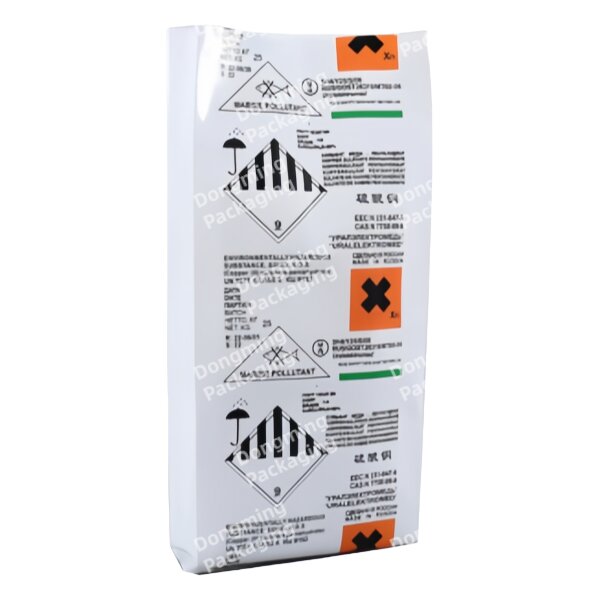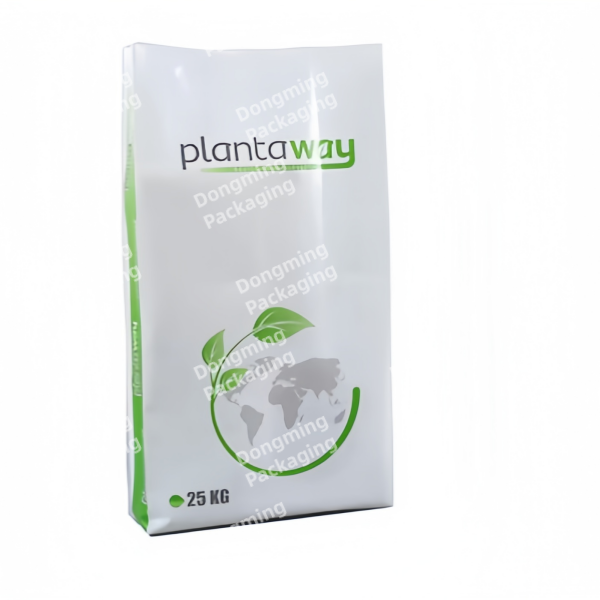Product Introduction
These bags possess excellent mechanical strength, puncture resistance, and impact resistance, maintaining stability during high-temperature filling and repeated handling. Crucially, their design supports customized venting channels and a one-way ventilation structure, enabling automatic venting during sealing and effectively preventing packaging damage and product deformation caused by compression or stacking. The special formula prevents softening and deformation at high temperatures and brittleness and breakage at extreme temperatures. They are also UV resistant, color stable, and can double the storage and shelf life of both the outer packaging and the product compared to woven bags. Common sizes include 500x300mm and 700x500mm.
Meanwhile, FFS bags possess excellent barrier properties (moisture permeability <2g/m²·24h), are suitable for outdoor stacking, and can be printed with high-definition images. Initially, FFS heavy-duty packaging bags were primarily used in the petrochemical industry for packaging solid granules and powders of synthetic resins such as PE, PP, and PVC. As their advantages have become more apparent, their use has gradually expanded to the chemical, building materials, agricultural, and food industries, for packaging fertilizers, feed, cement, rice, and grains. Their highly efficient automation is particularly noteworthy; when used with fully automatic FFS packaging machines, packaging speeds can reach 1200-2000 bags/hour, with a maximum of 1700-1900 bags/hour, significantly exceeding the packaging efficiency of traditional woven bags. The number of operators can be reduced by approximately 75%, significantly lowering overall packaging costs.




